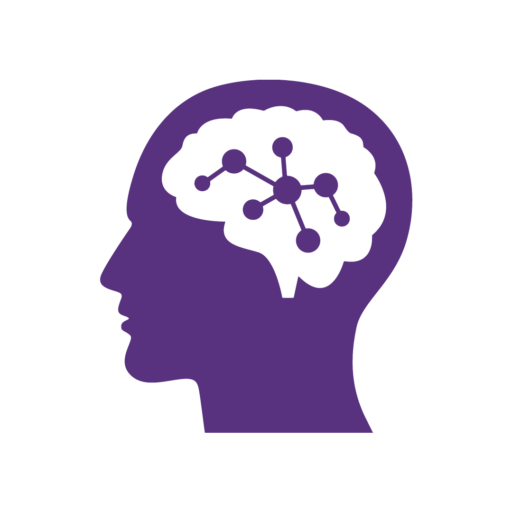In the intricate tapestry of human emotions, depression stands out as a dark thread that can weave its way through the fabric of life, affecting individuals in profound ways. Th us, here are 5 things to know about depression. Recognizing the signs, understanding its impact, and learning coping mechanisms are essential for fostering mental well-being. This article delves into the world of depression, shedding light on five key aspects that everyone should be aware of. From the signs and symptoms to the effects on the body and mind, coping strategies, helplines in India, and differentiating grief from depression, this comprehensive guide aims to provide valuable insights for those grappling with this complex mental health condition.
Table of Contents
1. Signs and Symptoms of Depression
Depression is not a fleeting bout of sadness but a persistent state of emotional distress that significantly impairs daily functioning. According to the Diagnostic and Statistical Manual of Mental Disorders, Fifth Edition, Text Revision (DSM-5-TR) by the American Psychiatric Association, specific criteria help identify clinical depression. These criteria include a persistent low mood, diminished interest or pleasure in activities, significant weight loss or gain, insomnia or hypersomnia, psychomotor agitation or retardation, fatigue or loss of energy, feelings of worthlessness or excessive guilt, diminished ability to think or concentrate, and recurrent thoughts of death or suicidal ideation.
It’s crucial to note that experiencing some of these symptoms doesn’t automatically mean one is clinically depressed. However, if several symptoms persist for an extended period and significantly impact daily life, seeking professional help is paramount.
Understanding the nuanced signs and symptoms of depression is the first step in the journey towards effective intervention. Individuals may manifest depression in various ways, and awareness of these subtleties can facilitate early recognition and support.
Depression often manifests differently in individuals, making it crucial to recognize the various ways it can present itself. For some, it might be a persistent feeling of sadness and hopelessness, while for others, it could manifest as irritability or physical symptoms like changes in appetite and sleep patterns. By understanding these diverse manifestations, we empower individuals and their support networks to recognize and address depression early on.
Moreover, the DSM-5-TR criteria provide a standardized framework for mental health professionals, ensuring a consistent and accurate diagnosis. However, it’s essential to consider the individual experience, as not everyone will exhibit the same set of symptoms. Personalized assessments and discussions with healthcare providers play a vital role in tailoring interventions to each person’s unique needs.
2. Effect of Depression on your Body and Mind
Depression is not merely a state of mind; it exerts a profound impact on the entire body. Physiologically, chronic stress associated with depression can lead to elevated levels of cortisol, the stress hormone, which, in turn, may contribute to a range of physical health issues. These may include cardiovascular problems, weakened immune function, and disturbances in sleep patterns.
From a cognitive perspective, depression can alter the way individuals think, making it challenging to concentrate, make decisions, and recall information. Cognitive functions are impaired, leading to a negative cognitive bias that distorts perceptions and perpetuates the cycle of depressive thoughts.
Understanding the mind-body connection in depression is crucial for adopting holistic approaches to treatment. Integrative interventions that address both mental and physical well-being, such as psychotherapy, exercise, and mindfulness practices, can be beneficial.
Furthermore, the impact of depression on personal relationships and professional life should not be underestimated. Social withdrawal, irritability, and decreased productivity are common consequences that can further exacerbate the challenges faced by individuals grappling with depression.
Physiologically, depression can lead to disruptions in the endocrine system, impacting hormones and neurotransmitters. Chronic stress, a common feature of depression, contributes to an inflammatory response in the body, potentially linking depression to conditions such as cardiovascular disease and autoimmune disorders.
Cognitively, depression can create a negative feedback loop, where distorted thinking patterns reinforce and exacerbate the emotional distress. This cognitive distortion can lead to a pervasive sense of hopelessness and contribute to the chronic nature of depression.
Recognizing these interconnected effects underscores the importance of comprehensive treatment plans that address both mental and physical well-being. Collaboration between mental health professionals, primary care physicians, and specialists in various fields ensures a holistic approach to managing the complex impact of depression on the body and mind.
3. How to Cope with Depression
Coping with depression involves a multifaceted approach that encompasses medical, psychological, and lifestyle interventions. While medication may be prescribed in severe cases, therapy is often a cornerstone of treatment. Cognitive-behavioral therapy (CBT) and interpersonal therapy (IPT) are commonly used modalities that help individuals identify and address negative thought patterns and improve interpersonal relationships.
Read More: Overcoming Depression: 9 Step Guide to Fight the depression
Lifestyle modifications also play a pivotal role in managing depression. Regular exercise has been shown to have mood-enhancing effects by promoting the release of endorphins, the body’s natural feel-good chemicals. Adequate sleep, a balanced diet, and avoiding alcohol and substance abuse are essential components of a holistic approach to coping with depression.
Moreover, building a strong support system, comprising friends, family, and mental health professionals, can provide a crucial lifeline for individuals navigating the challenges of depression. Open communication, self-compassion, and setting realistic goals contribute to creating a resilient foundation for coping.
Cognitive-behavioral therapy (CBT), a widely utilized therapeutic approach, helps individuals identify and challenge negative thought patterns. By understanding the connection between thoughts, emotions, and behaviors, individuals can develop healthier coping mechanisms and break the cycle of depressive thinking.
Interpersonal therapy (IPT) focuses on improving communication and interpersonal skills, addressing relationship issues that may contribute to or result from depression. This approach recognizes the interconnected nature of mental health and interpersonal dynamics, aiming to enhance social support and mitigate stressors.
In addition to therapeutic interventions, lifestyle modifications are integral to coping with depression. Regular exercise, for instance, has been shown to have antidepressant effects by promoting the release of endorphins, the body’s natural mood elevators. Establishing healthy sleep patterns, maintaining a balanced diet, and avoiding substances that can exacerbate depression contribute to overall well-being.
A crucial aspect of coping with depression is building a support network. Friends and family members can provide emotional support, understanding, and encouragement. In some cases, support groups or online communities offer valuable connections with individuals experiencing similar challenges. Professional help, including psychiatrists, psychologists, and counselors, plays a pivotal role in guiding individuals through the therapeutic process.
Creating a comprehensive toolkit for coping with depression involves a personalized approach that considers individual preferences and strengths. Incorporating activities that bring joy, practicing mindfulness and relaxation techniques, and setting achievable goals contribute to a holistic strategy for managing depression.
4. Depression Helplines in India
Recognizing the importance of accessible mental health support, several helplines operate in India to provide assistance to those struggling with depression. Organizations such as Vandrevala Foundation, Roshni, and iCall offer confidential helpline services staffed by trained professionals.
Vandrevala Foundation focuses on supporting individuals dealing with stress, anxiety, and depression, providing a helpline that offers a listening ear and guidance. Roshni, based in Hyderabad, operates a 24/7 helpline offering emotional support and suicide prevention services. iCall, a pan-India initiative, provides telephonic counseling services to individuals in need.
These helplines are invaluable resources for individuals seeking immediate emotional support or guidance on navigating the complexities of depression. Initiatives like these contribute significantly to breaking the stigma surrounding mental health and fostering a culture of empathy and understanding.
5. Grief vs Depression: Difference in between the two
Grief and depression are two distinct emotional experiences, yet they share similarities that can sometimes lead to confusion. Grief is a natural response to loss, often associated with the death of a loved one, whereas depression is a clinical mental health condition with specific diagnostic criteria.
One crucial distinction lies in the duration and intensity of the emotional experience. Grief tends to be time-limited, with emotions gradually evolving as individuals adapt to the loss. In contrast, depression persists over an extended period and may not necessarily be triggered by a specific event.
While grief may encompass feelings of sadness, emptiness, and even hopelessness, it generally does not lead to the pervasive negative thoughts and physical symptoms characteristic of depression. Grieving individuals can find solace in support from friends, family, or grief counseling, while those with depression may require more intensive and structured interventions, such as therapy and medication.
Understanding and acknowledging the differences between grief and depression are crucial for appropriate intervention and support. Misinterpreting one for the other can hinder the healing process and exacerbate emotional distress.
Grief is a natural response to loss and encompasses a range of emotions such as sadness, disbelief, anger, and yearning. It often follows a predictable trajectory, with emotions gradually evolving as individuals come to terms with the reality of the loss. While the intensity of grief can be overwhelming, it tends to diminish over time.
Depression, on the other hand, is characterized by persistent feelings of sadness, hopelessness, and a lack of interest or pleasure in activities. It may not necessarily be linked to a specific event and can endure for an extended period, significantly impacting daily functioning.
One key aspect distinguishing grief from depression is the presence of certain symptoms. In grief, feelings of emptiness and sadness are expected, but individuals can still experience moments of joy or connection. In depression, the pervasive nature of negative emotions can lead to a profound impact on all aspects of life.
Another differentiating factor is the impact on self-esteem. Grieving individuals may struggle with self-esteem temporarily due to the loss, but in depression, a persistent sense of worthlessness or excessive guilt is a defining characteristic.
It’s essential to recognize that grief and depression can coexist, complicating the emotional landscape for some individuals. Seeking professional guidance can help navigate these complexities and ensure appropriate support.
Conclusion
Depression is a complex and multifaceted mental health condition that requires careful understanding and compassionate intervention. Recognizing the signs and symptoms, understanding its impact on the body and mind, adopting coping strategies, accessing helplines, and differentiating it from grief are crucial steps in fostering mental well-being. By disseminating knowledge and encouraging open conversations about depression, we contribute to breaking the stigma surrounding mental health and creating a society where individuals feel supported in their journey towards healing and recovery.
In this comprehensive guide, we’ve explored the intricate facets of depression, aiming to provide valuable insights for individuals, families, and communities. By fostering awareness and empathy, we take a collective step towards a world where mental health is prioritized and where those grappling with depression find the understanding and support they need.
References
- Sboli, M., Fiuzat, M., Cani, D., & O’Conner, C. M. (2020, November). Depression and heart failure: the lonely comorbidity. European Journal of Heart Failure, 22(11), 2007-2017. Wiley Online Library. https://doi.org/10.1002/ejhf.1865
- Swendsen, J. D., & Merikangas, K. R. (2000). The comorbidity of depression and substance use disorders. Clinical Psychology Review, 20(2), 173-189. https://doi.org/10.1016/S0272-7358(99)00026-4

